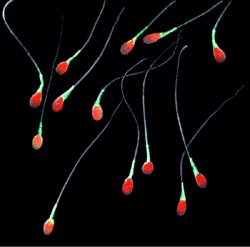Aggregated News

Colorado Senate president Steve Fenberg has just introduced groundbreaking legislation on the rights of donor conception. Although focused on Colorado, that legislation could affect the multi-billion-dollar fertility industry and the tens of thousands of children born each year from donor conception.
The Colorado legislation goes beyond what any other state has done. It provides that, once they turn 18, donor-conceived people can learn the identity of their donor. In addition, it sets limits on the number of families who create children through any particular donor and requires the creation and availability of materials that provide guidance for donor-conceived people, recipients and donors throughout the process, including disclosure to donor-conceived children.
In considering such legislation, Colorado has stepped into a vacuum. At the national level, there’s an absence of clear rules and laws regulating assisted reproductive technology. The federal government requires only that donated sperm and eggs be treated like other human tissue and tested for communicable diseases — infectious conditions that spread through viruses, bacteria and other means — but not genetic diseases. There are also no federal requirements...



